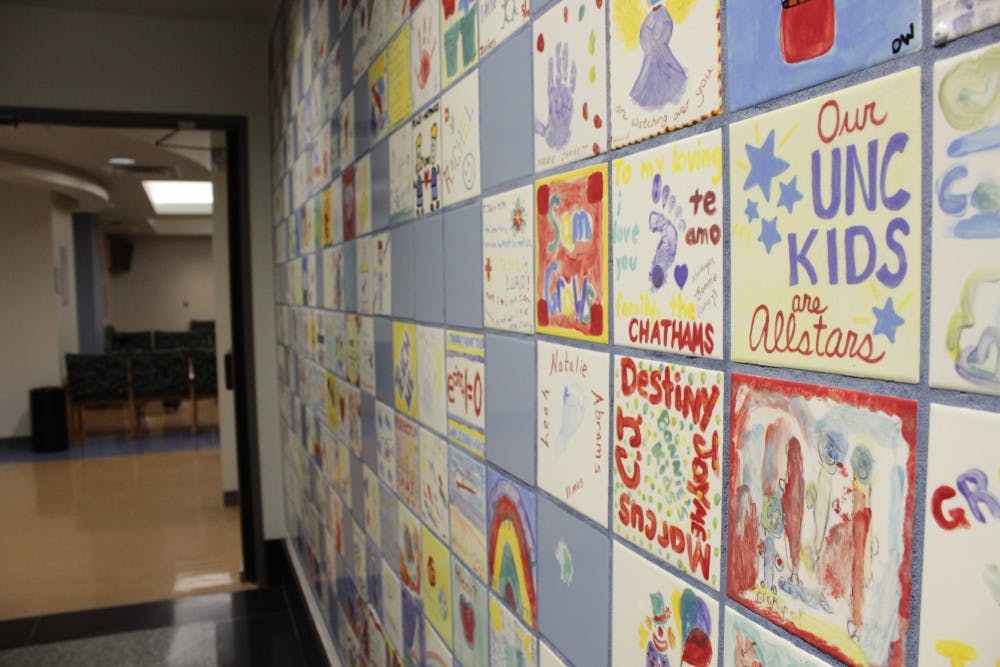Clarification: An original version of this story implied the program started as a result of the opioid crisis. While the cuddlers do help children born into the crisis, the program started much earlier to provide comfort and help to newborns.
Heart racing, Carol Freedman looked at the infant in front of her. In the neonatal critical care unit of NC Children's hospital, tubes protruded from the child’s body, one for breathing, one for feeding and one for bile.
“I looked at this child, and I was just completely filled with love for this child,” Freedman said. “I would look at his facial expressions and start laughing and try to interpret what he was communicating to me to then try to make adjustments for him.”
This was the first time Freedman, an administrative support specialist for UNC Division of Finance and Administration, would hold a baby as a cuddler in the NC Children's Hospitals cuddling volunteer program. In this first time, Freedman sensed the baby gain comfort, something recognized by scientists as a saving grace. Cuddling is utilized by UNC Hospitals and hospitals across the country to serve pediatric patients and improve their health.
UNC Hospitals volunteer coordinator Beth Bailey said when a cuddler walks into the room of a patient, that patient knows they are safe from the gloominess of other hospital business.
“Imagine yourself being young and you're in a hospital and maybe you're by yourself and it seems like everyone who comes into your room wants to do something to you,” Bailey said. “They want to take your blood, they want to give you a shot, they want to do this, and they're not able to be a kid. And so you've got someone now going into the room that's like, ‘Hey, I'm a completely safe person and I'm just here to have fun with you, and let's just play and let's just be a kid.’”
Over the years, Robyn Bramow, another volunteer, the lead cuddler at UNC Hospitals and a teacher for 33 years, witnessed multiple children in her classes undergo illness and hospital stays. One of her students even passed away.
Bramow, now retired, cites her time as a schoolteacher as a contributing factor to what led her to give back to the community in this way. The patients she and Freedman work with are often without family present and in need of a respite away from purely hospital operations, shots and pain.
“When you feel better, you heal faster,” Bramow said. “With little babies, the positive stuff makes them grow better. Being held, talked to, touched, all is good for an infant. And because of that, that's why we do it. It's bringing the home back into the child's life.”



